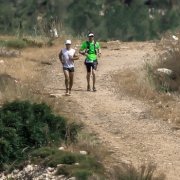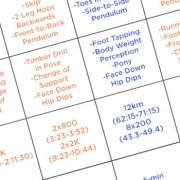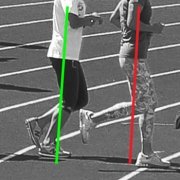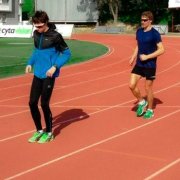Training: 5 Signs of Overtraining
Sport specific training is not the simplest of tasks, yet so many attempt to train and to create training programs without really having a clue of what training process is. As a result, there are too many overtrained athletes in danger of being permanently injured.
It is necessary for every coach and athlete to be aware of these important signs of overtraining.
#1 BIO-MOTOR: LOSS OF COORDINATION
The most classical and usually the first of signs of overtraining. Unfortunately, this #1 sign is commonly overlooked. Instead the focus is on heart rate and other physiological signs, which are also important, but loss of coordination comes first. As a matter of fact, it comes first when we get sick, too. Ever noticed how you get a bit clumsy when you have a common cold? Interestingly enough, the minor injuries that happen (bumping into things in a familiar setting, stumbling or tripping, etc) because of the loss of coordination, actually help prevent serious overtraining because you know you’re not going to be attempting to work out when you can’t keep your balance. It’s your body’s way of saying “take a break”. So always pay attention to your coordination ability, it’s the first sign of things starting to head in the wrong direction.
#2 PHYSIOLOGICAL: HEART RATE DEVIATIONS FROM AVERAGES
As you know there is “resting”, “working” and “recovering” heart rate. Special attention needs to be paid to changes in your “resting” heart rate. Some degrees of deviation ( ± 3 bpm) are acceptable, but some (± 6-9 or higher) are a bright sign of you entering the danger zone.
#3 PHYSIOLOGICAL: LOSS OF MUSCLES’ ABILITY TO RELAX
Muscles’ normal function is to contract and expand, tense and relax. The loss of the ability to relax means your muscles stay in a constant state of tension. Not good, not how it is supposed to be.
#4 PSYCHOLOGICAL: ONSET OF IRRITABILITY, DISSATISFACTION AND CONSTANT FATIGUE
If your girl/boyfriend dumped you it’s one thing, but if you’ve been “training hard” preparing for your big race and all over sudden you feel annoyed, always tired, never happy with what you’re doing or what’s going on – it is almost a guarantee that you’re overtrained. Sport activities are meant to bring you pleasure, satisfaction, things of that nature. So if you’re feeling the opposite, maybe it’s time to change what you’re doing… wouldn’t you say?
#5 RADICAL DROP IN TRAINING AND RACING PERFORMANCE
This one sneaks up on you. People don’t see it coming and then don’t know what hit them. But the more they try to train “harder and better” the deeper they are digging themselves in. It is a short distance from here to a “point of no return”, so you better STOP NOW.
What is not commonly known, is the fact that your training and racing performance will be ok for a while after you start going “downhill”. You will continue to perform ok under an illusion that you are simply dealing with one of your “down/off/up/good/so-so” days (whatever you want to call it). Until one day everything starts going steadily downhill, and you can’t seem to get out of it.
So, don’t get yourself to that point, be smarter and listen to your body. Treated with care it will flawlessly serve you for years.

 Pose Method Publishing, Inc
Pose Method Publishing, Inc

 Pose Method Publishing, Inc
Pose Method Publishing, Inc Pose Method Publishing, Inc
Pose Method Publishing, Inc Pose Method Publishing, Inc
Pose Method Publishing, Inc Pose Method Publishing, Inc
Pose Method Publishing, Inc Pose Method Publishing, Inc
Pose Method Publishing, Inc Pose Method Publishing, Inc
Pose Method Publishing, Inc Pose Method Publishing, Inc
Pose Method Publishing, Inc Pose Method Publishing, Inc
Pose Method Publishing, Inc
Leave a Reply
Want to join the discussion?Feel free to contribute!